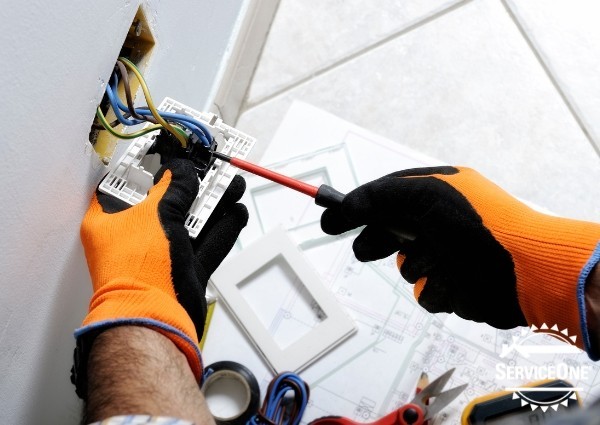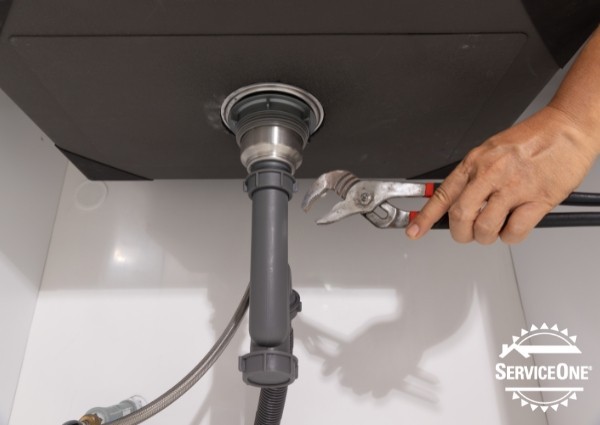This last round of storms for the Midwest was a little tough on us. Lots of straight-line winds and possible tornadic activity means downed tree limbs, lots of yard debris, probable house damage, and even a lack of electrical power to your home or business. And even with the power companies doing everything they could, some people were without power for days. In addition to all of the storm clean-up, you also have to deal with spoiled food, lost data, and more with the power being out for that long. So what’s the solution? Look at a whole-house backup generator for your home or business.
What is a whole-house backup generator?
Standby generators are installed permanently, usually on a concrete pad outside of your home or business. These permanent generators are connected directly to your home’s electrical system so they can provide uninterrupted power for days, if needed. They run on natural gas or propane, depending on what type of gas you use at your property and what size they are. And they come with the flexibility for you to choose what systems/appliances you want them to power in case of electrical outage.
Can you DIY with a whole-house backup generator?
Because you are working with both your gas lines and your electrical systems, it’s best to not do the installation / maintenance for these permanent generators on your own.
How does it work? Do I need to turn it on if my power goes out?
These generator systems have an automatic transfer switch. This switch will sense when the main power grid goes down and you don’t have electricity coming to your home or business. It will automatically switch you over to generator power. Then, when the main power grid comes back on, it will switch your home or business back to the main power grid. There is no manual switching over needed.
So what are the benefits to me with a whole-house backup generator?
- These systems are worry-free.
- With the automatic switching back and forth, depending on the availability of the main power grid, you don’t need to worry about computer equipment dying or overheating, food spoiling, or being without power for extended periods of time. If you have any home medical equipment, it’s especially important to make sure you have that uninterrupted power supply.
- An uninterrupted power source means that food won’t go bad in your fridge or freezer. In addition, if you use anything electrical to cook your meals, you’ll still be able to prepare home-cooked meals for you and your family.
- With the power out, temperatures may drop in your house. With uninterrupted power, the heat stays on and this means no freezing temps in the house. And, as an added bonus, no frozen pipes.
Why is this better than a portable generator that I can hook up and just use when I want?
- A portable generator generally is powered by gas (from a gas can) and if your power goes out during a storm or in the middle of the night, you will have to fumble with the gas can, get it filled, and get it running.
- A portable generator generally gives off carbon monoxide, which is dangerous in and of itself. Because of this, they generally run a little ways away from the property it’s powering. Long extension cords are needed to run between this portable generator and the house. These can become unplugged and can be a hassle all on their own!
- The automatic switch on the whole-house backup generator also doubles as a surge protector and can help to prevent back-feeding electricity, which can lead to fires in your property and can be lethal.
- A permanent/standby/whole-house generator may earn you a discount on your homeowner’s insurance (of course, check with your property’s agent first).
What are the cons of having a whole-house backup generator?
- They can be noisy (of course, so can portable generators). Of course, nothing is as quiet as being completely electricity-free…
- With DIY installation not recommended because of the plumbing and electrical skills needed, there are some installation fees.
- Standby/whole-house generators generally have a larger price tag than portable generators. But keep in mind that you are paying for peace of mind and a permanent solution for your home or business.
- They do need regular servicing, as do portable generators. If you’re relying on generator energy, you will want to be sure to schedule regular maintenance for it (as regular as your AC or furnace check-ups) and following 24-48 hours of continuous use.
Who is a whole-house backup generator perfect for?
- Small business owners who need to stay connected, especially if they have clients or customers depending on them.
- Families with small children.
- Home-based / virtual workers who need to stay connected for their clients or jobs.
- Anyone relying on electricity-based medical equipment.
ServiceOne offers Generac home backup power systems. If you’re interested in seeing what we can do for your home, give us a call.



